FRENCH state-owned energy giants EDF and Areva, which will bid to build SA’s nuclear power stations, will seek partnerships with private investors such as large industrial users of electricity, says French special envoy on nuclear energy Pascal Colombani.
The request for proposals to build 9,600MW of nuclear power is expected to be issued by the end of the month. France, Russia, China and the US have expressed interest in the project, but the deciding issue is likely to be the financing solution, as SA has a constrained fiscal framework.
Without specifying figures — costs will depend on the prescriptions set by the Department of Energy in the bid documents — French government officials said last week there were no financing shortcuts. A nuclear project in SA would require equity and debt from the government and other partners. Large electricity users could invest upfront with the French companies in exchange for discounted electricity tariffs.
By contrast, Russia, the other frontrunner in the bid, downplayed the need for the government to finance the project commercially or provide substantial equity.
It said finance could be provided by Russian government loans, secured by a long-term power purchase agreement.
At a meeting with journalists in Paris on Friday, Mr Colombani said the financing would necessarily involve equity and debt, with loans from commercial banks facilitated by the French government through export credit guarantees.
"We have the tools to ensure that debt (can be raised) in a manner we have done in many other countries," he said.
"And when it comes to equity, this will most likely involve the utility (Eskom), industrial users of electricity and other financial partners. Once we see the call for proposals, we will be discussing with all partners that are willing to invest," Mr Colombani said.
Bernard Fontana, head of Areva Nuclear Power, said intensive industrial users of electricity could participate in some sort of syndicate, where a discount tariff would be agreed ahead of construction.
This would be a "win-win", as securing customers upfront reduced risk for the nuclear vendor and other investors and financiers, while certainty over a long-term electricity supply and price was an advantage for industrial customers, Mr Fontana said.
But there was no escaping the fact that if SA wants nuclear power, it will have to pay for it.
Frédéric Journès, director of French government technological research body Alternative Energies and Atomic Energy Commission said that France hoped to secure interest rates that were "very close to OECD (Organisation for Economic Co-operation and Development) standards".
The OECD sets minimum interest rates for export credits according to the relevant commercial interest rates of the currencies being used.
"No one sells a nuclear reactor knowing they are financing it at a loss. If you find a bank that is lending 1% or 2% below the market, then you know there is something wrong with that bank.
"No one in the OECD finances at below OECD rates, as it is the opinion of financiers that those are dangerous loans," he said.
There is very little clarity on the absolute or relative levels of debt and equity that would be required to finance SA’s nuclear build.
Studies by international consultancies KPMG, Ingerop and Deloitte commissioned by the Department of Energy in 2014, have been kept secret with commercial concerns cited to the many requests for disclosure by Business Day. The studies are believed to suggest that the minimum overnight capital cost for the 9,600MW of nuclear power would be about $4,900 per kilowatt, which is about $50bn for the fleet, excluding financing costs.
Project director for the Energy Intensive User Group Shaun Nel said yesterday French banks had attempted to raise interest in partnership with industrial users for several years with "zero interest".
While this was a successful model in France, in SA the large energy-intensive industry was in decline and a large nuclear project would be unlikely to ensure prices were below where they are today, a major reason for its decline.
As companies were also finding that the cost debt was higher than returns, there was little prospect that firms would co-fund Mr Nel said. Large users already had fairly advanced plans for self-generation, given SA’s lack of energy security, he said.
While Areva has previously been SA’s partner in nuclear co-operation — the company built and services the Koeberg nuclear power station — EDF, the world’s biggest electricity generator, will lead the bid in SA. Deep financial difficulties have forced France to restructure its nuclear power sector in the past few months.
Areva, which is technically bankrupt and has suffered successive losses including a €2bn loss for last year, is to be broken up, with half its stock to be sold to EDF.
Mr Fontana said all French state-owned energy assets would be put under a common structure behind EDF. W hile Areva Nuclear Power would still have a presence in the SA bid, given its track record in the operation of reactors, EDF would be the team leader.
But EDF has had a negative cash flow and mounting debt for several years and its UK nuclear reactor project at Hinkley Point has run into difficulties.
While EDF secured a 33.5% investment from China’s nuclear company, it has not raised the rest of Hinkley Point’s financing, estimated to be €15bn in the next 10 years, despite its power purchase agreement with the British government, committing it to buying power from the facility for 35 years at a rate more than double the current wholesale price.
EDF executives and French government officials dodged questions on whether the company would consider investing in the South African nuclear power build.
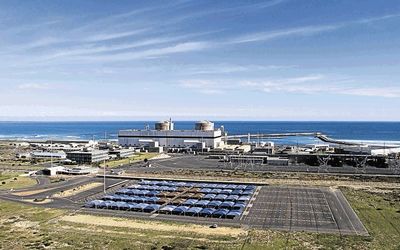
Koeberg nuclear power station. Picture: SUNDAY TIMES
FRENCH state-owned energy giants EDF and Areva, which will bid to build SA’s nuclear power stations, will seek partnerships with private investors such as large industrial users of electricity, says French special envoy on nuclear energy Pascal Colombani.
The request for proposals to build 9,600MW of nuclear power is expected to be issued by the end of the month. France, Russia, China and the US have expressed interest in the project, but the deciding issue is likely to be the financing solution, as SA has a constrained fiscal framework.
Without specifying figures — costs will depend on the prescriptions set by the Department of Energy in the bid documents — French government officials said last week there were no financing shortcuts. A nuclear project in SA would require equity and debt from the government and other partners. Large electricity users could invest upfront with the French companies in exchange for discounted electricity tariffs.
By contrast, Russia, the other frontrunner in the bid, downplayed the need for the government to finance the project commercially or provide substantial equity.
It said finance could be provided by Russian government loans, secured by a long-term power purchase agreement.
At a meeting with journalists in Paris on Friday, Mr Colombani said the financing would necessarily involve equity and debt, with loans from commercial banks facilitated by the French government through export credit guarantees.
"We have the tools to ensure that debt (can be raised) in a manner we have done in many other countries," he said.
"And when it comes to equity, this will most likely involve the utility (Eskom), industrial users of electricity and other financial partners. Once we see the call for proposals, we will be discussing with all partners that are willing to invest," Mr Colombani said.
Bernard Fontana, head of Areva Nuclear Power, said intensive industrial users of electricity could participate in some sort of syndicate, where a discount tariff would be agreed ahead of construction.
This would be a "win-win", as securing customers upfront reduced risk for the nuclear vendor and other investors and financiers, while certainty over a long-term electricity supply and price was an advantage for industrial customers, Mr Fontana said.
But there was no escaping the fact that if SA wants nuclear power, it will have to pay for it.
Frédéric Journès, director of French government technological research body Alternative Energies and Atomic Energy Commission said that France hoped to secure interest rates that were "very close to OECD (Organisation for Economic Co-operation and Development) standards".
The OECD sets minimum interest rates for export credits according to the relevant commercial interest rates of the currencies being used.
"No one sells a nuclear reactor knowing they are financing it at a loss. If you find a bank that is lending 1% or 2% below the market, then you know there is something wrong with that bank.
"No one in the OECD finances at below OECD rates, as it is the opinion of financiers that those are dangerous loans," he said.
There is very little clarity on the absolute or relative levels of debt and equity that would be required to finance SA’s nuclear build.
Studies by international consultancies KPMG, Ingerop and Deloitte commissioned by the Department of Energy in 2014, have been kept secret with commercial concerns cited to the many requests for disclosure by Business Day. The studies are believed to suggest that the minimum overnight capital cost for the 9,600MW of nuclear power would be about $4,900 per kilowatt, which is about $50bn for the fleet, excluding financing costs.
Project director for the Energy Intensive User Group Shaun Nel said yesterday French banks had attempted to raise interest in partnership with industrial users for several years with "zero interest".
While this was a successful model in France, in SA the large energy-intensive industry was in decline and a large nuclear project would be unlikely to ensure prices were below where they are today, a major reason for its decline.
As companies were also finding that the cost debt was higher than returns, there was little prospect that firms would co-fund Mr Nel said. Large users already had fairly advanced plans for self-generation, given SA’s lack of energy security, he said.
While Areva has previously been SA’s partner in nuclear co-operation — the company built and services the Koeberg nuclear power station — EDF, the world’s biggest electricity generator, will lead the bid in SA. Deep financial difficulties have forced France to restructure its nuclear power sector in the past few months.
Areva, which is technically bankrupt and has suffered successive losses including a €2bn loss for last year, is to be broken up, with half its stock to be sold to EDF.
Mr Fontana said all French state-owned energy assets would be put under a common structure behind EDF. W hile Areva Nuclear Power would still have a presence in the SA bid, given its track record in the operation of reactors, EDF would be the team leader.
But EDF has had a negative cash flow and mounting debt for several years and its UK nuclear reactor project at Hinkley Point has run into difficulties.
While EDF secured a 33.5% investment from China’s nuclear company, it has not raised the rest of Hinkley Point’s financing, estimated to be €15bn in the next 10 years, despite its power purchase agreement with the British government, committing it to buying power from the facility for 35 years at a rate more than double the current wholesale price.
EDF executives and French government officials dodged questions on whether the company would consider investing in the South African nuclear power build.

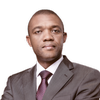
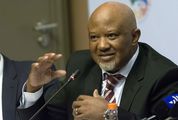
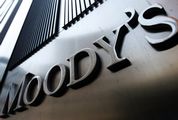

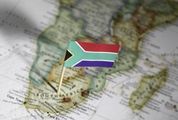
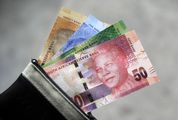

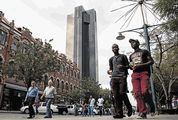
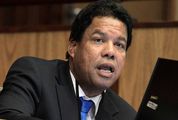

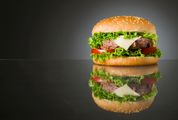
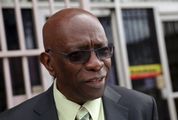









Change: 1.58%
Change: 1.37%
Change: 2.69%
Change: 0.70%
Change: 3.24%
Data supplied by Profile Data
Change: 0.60%
Change: 0.43%
Change: 1.58%
Change: 0.00%
Change: 0.56%
Data supplied by Profile Data
Change: -0.47%
Change: -0.13%
Change: 0.25%
Change: 0.65%
Change: 0.83%
Data supplied by Profile Data
Change: 0.35%
Change: 0.82%
Change: 0.45%
Change: 0.69%
Change: 1.54%
Data supplied by Profile Data